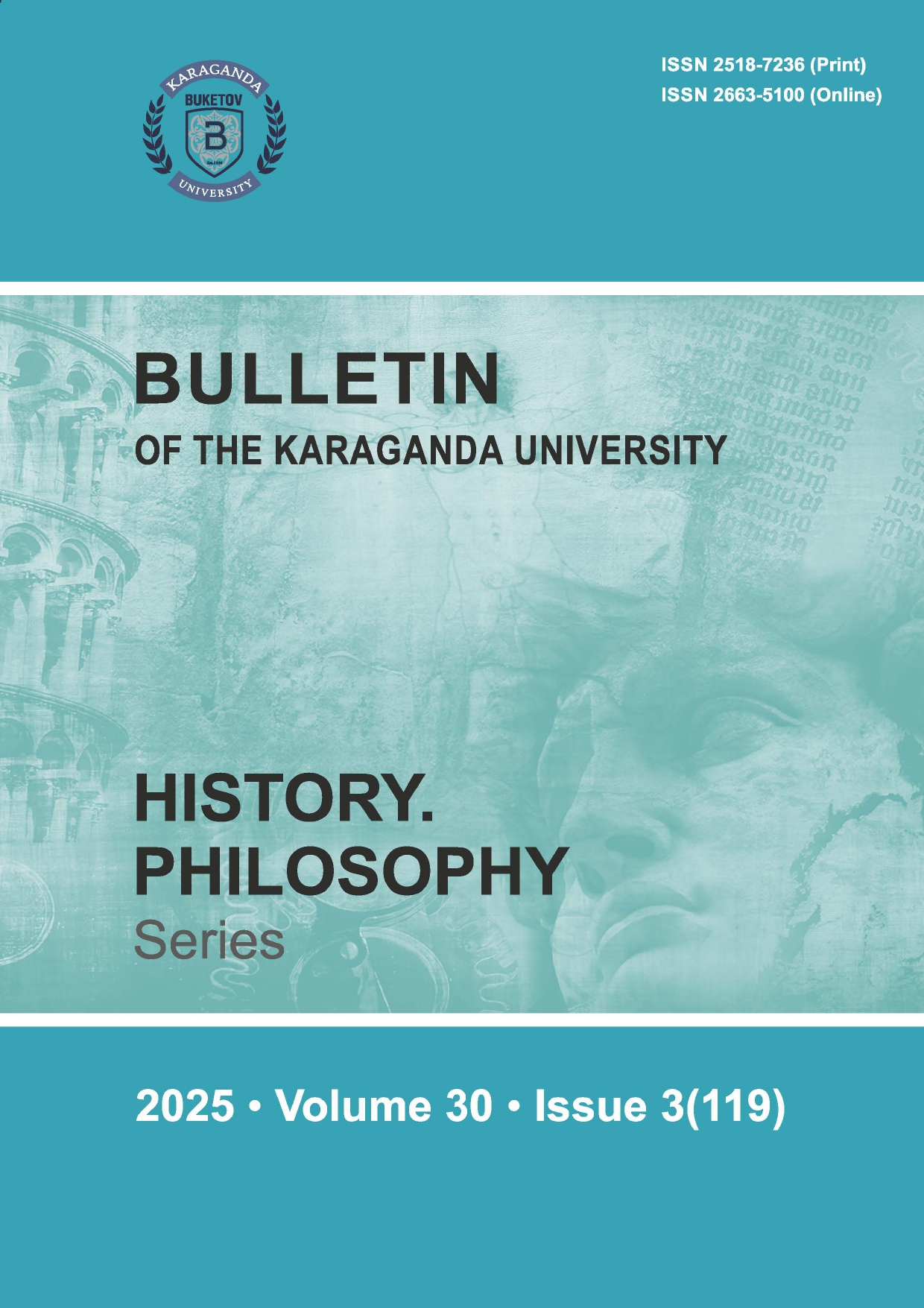Hasan Oraltay and the Construction of a Kazakh Counter-Narrative (1956–1991)
DOI:
https://doi.org/10.31489/2025hph3/16-26Keywords:
Hasan Oraltay, Kazakh diaspora, Radio Azattyq, Soviet historiography, Alash, Cold War, historical memory, emigration, national identity, Kazakh refugeesAbstract
This article provides a comprehensive analysis of the life and work of Hasan Oraltay, a central figure in the twentieth-century Kazakh diaspora and the foundational historian of its anti-Soviet, anti-communist intellectual tradition. This study addresses the key question of how, under the rigid ideological control and censorship of the Soviet regime, an alternative historical narrative for the Kazakh people was constructed and effectively disseminated. The key issues investigated include the systematic distortion of Kazakh history by official Soviet historiography, the suppression of the history of Kazakhs outside the USSR, and the role of the diaspora in preserving national consciousness. This research conducts a systematic analysis of H. Oraltay’s major published works, declassified archival documents from his personal collection, and the broadcast records of Radio Azattyq (RFE/RL). The central thesis argues that Hasan Oraltay was not merely a publicist, but the principal architect of the Kazakh diaspora’s historiography. His work is presented as a deliberate, strategic project to build a counter-narrative founded on three pillars: first, the transformation of the collective trauma of the Great Kazakh Exodus into a heroic epic of a struggle for freedom; second, the restoration of historical continuity by linking the mid-century national liberation struggle to the state-building legacy of the Alash movement; and third, the masterful use of Cold War media, specifically Radio Azattyq, to broadcast this narrative into Soviet Kazakhstan. The article concludes that H. Oraltay, acting as an “intellectual warrior”, successfully forged and propagated a coherent alternative vision of the Kazakh past, which played a crucial role in preserving historical memory for the diaspora and nurturing the national consciousness that underpinned Kazakhstan’s post-1991 intellectual revival.




